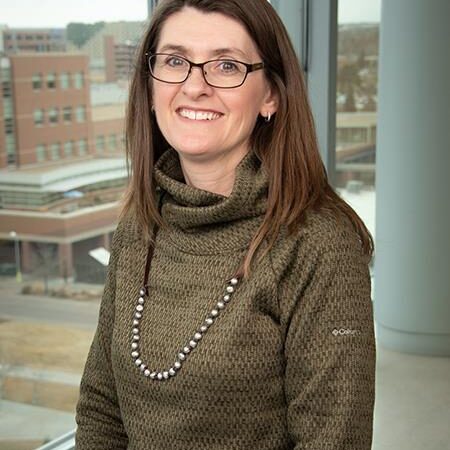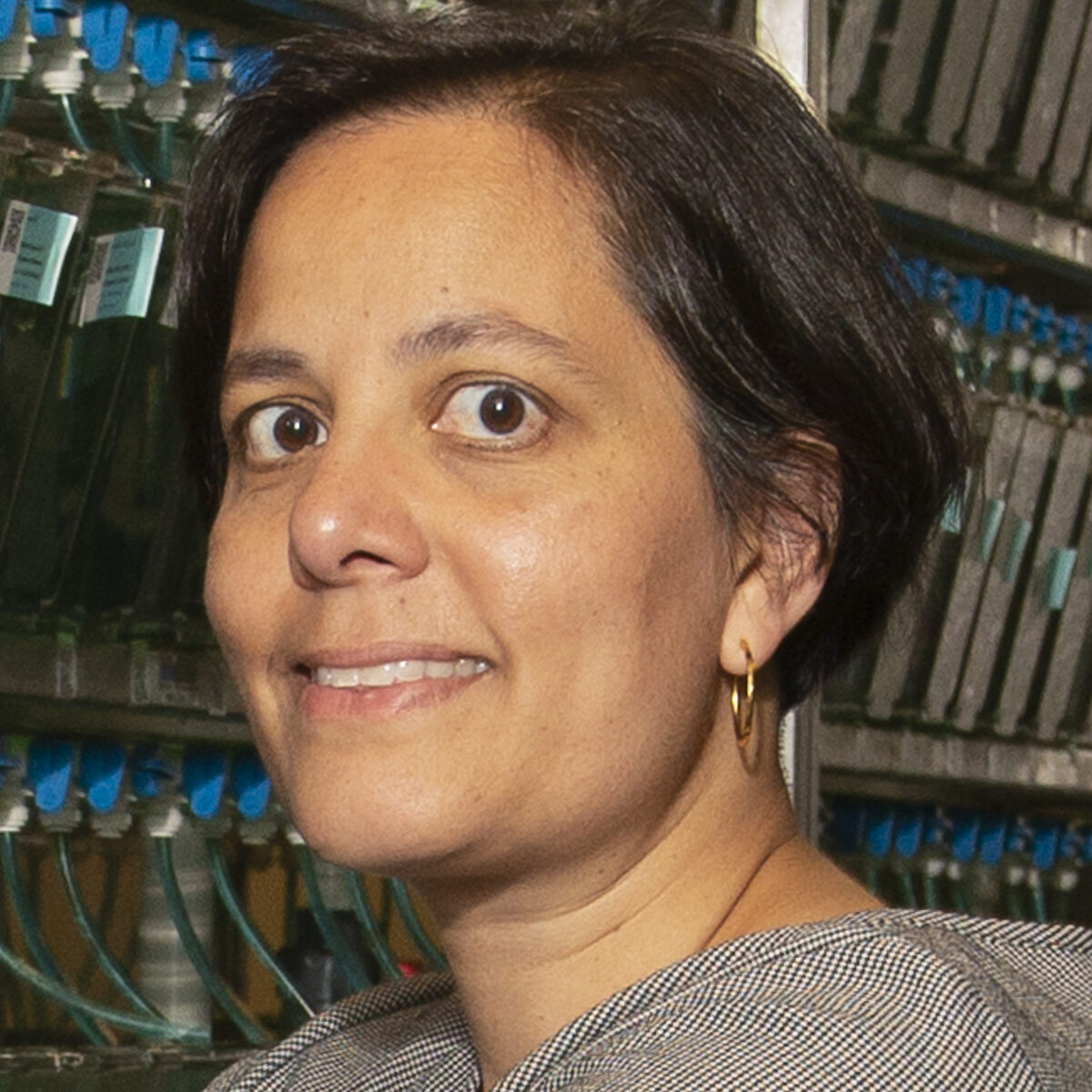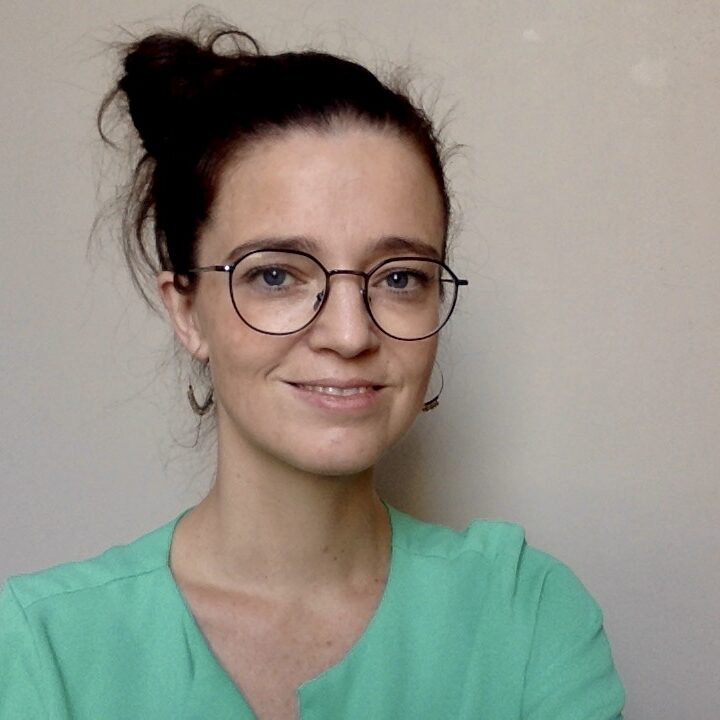SCIENTIFIC ADVISORY BOARD
SCIENTIFIC ADVISORY BOARD
KCNQ2-related encephalopathies are severe epilepsy and developmental disorder beginning in the newborn period. While epilepsy may settle in infancy, the child’s development may often be very impaired. Other co-morbidities can occur such as autism spectrum disorder. Research and collaboration are the way forward to improve the lives of children and their families living with KCNQ2-related encephalopathies.
- Professor Ingrid Scheffer

Alfred George, MD
BOARD CHAIR
Northwestern Medicine
Feinberg School of Medicine
Alfred George is the Magerstadt Professor of Pharmacology, chair of the Department of Pharmacology, and director of the Center for Pharmacogenomics at Northwestern University Feinberg School of Medicine.
He has over 30 years of experience investigating the structure, function, molecular genetics, and pharmacology of human ion channels and transporters. He is an internationally regarded leader in channelopathies, including paroxysmal disorders of the heart, brain, and neuromuscular system.
Dr. George has been a pioneer in elucidating the genetics and pathogenesis of channelopathies - disorders caused by mutations in ion channel genes. His work focuses on genetic disorders caused by voltage-gated ion channel mutations that are responsible for disorders of membrane excitability, including diseases affecting muscle, heart, and brain that result in abnormal muscle contraction, cardiac arrhythmias, sudden death, epilepsy, and related neurodevelopmental disorders. Dr. George has been involved from the beginning of the channelopathy field, making enduring contributions to revealing the molecular genetic basis for several disorders, elucidating the functional consequences of dozens of mutant ion channels, and helping to translate discoveries into new therapeutic strategies for these orphan diseases.
His laboratory at Northwestern University installed the first gigaseal-capable 384-well automated electrophysiology platform in the United States and has demonstrated proficiency in using it for high-throughput functional evaluations of human ion channel variants.

Edward Cooper, MD, PhD
Baylor College of Medicine
Ed Cooper is an associate professor of Neurology, Neuroscience, and Molecular & Human Genetics at the Baylor College of Medicine in Houston, Texas. He earned his professional degrees from Yale University and completed his post-doctoral program and neurology residency at the University of California San Francisco. He heads up The Cooper Laboratory for Molecular Neuropharmacology and the RIKEE project, a multicenter patient registry to study KCNQ2/3 variants and characteristics.

Orrin Devinsky, MD
New York Langone Health
Orrin Devinsky is a Professor of Neurology, Neurosurgery, and Psychiatry at the NYU School of Medicine, where he directs the Epilepsy Center and the Saint Barnabas Institute of Neurology. His epilepsy research includes cannabidiol, ganaxolone, autism, clinical-genetic correlations, healthful behavioral changes, sudden death syndromes, therapeutic electrical stimulation, quality-of-life enhancement, cognitive and behavioral issues, and surgical therapy.
Dr. Devinsky received his medical degree from Harvard Medical School, founded Finding A Cure for Epilepsy and Seizures (FACES), co-founded epilepsy.com, and was a lead neurologist in CBD clinical trials for the treatment of epilepsy.

Dennis J. Dlugos, MD, MSCE
Children's Hospital of Phillidelphia
Dennis J. Dlugos, MD, MSCE, is a professor of neurology and pediatrics at Children’s Hospital of Philadelphia (CHOP) and the University of Pennsylvania School of Medicine. He is Director of the Section of Clinical Neurophysiology and the Epilepsy/Clinical Neurophysiology Fellowship. He holds the Catherine D. Brown Endowed Chair in Pediatric Epilepsy.
Dr. Dlugos obtained his medical degree at Columbia University College of Physician and Surgeons in 1988, and a Master of Science Degree in Clinical Epidemiology (MSCE) from the Center for Clinical Epidemiology and Biostatistics, University of Pennsylvania School of Medicine in 2002. He completed an internship in Pediatrics at the National Naval Medical Center in Bethesda, Maryland, in 1989, and served as an Undersea Medical Officer in the U.S. Navy from 1989 to 1993. He then completed a residency in Pediatrics at Thomas Jefferson University and Alfred I. duPont Institute in Philadelphia, Pennsylvania, and Wilmington, Delaware. Dr. Dlugos then completed a residency in Neurology/Child Neurology and a fellowship in Epilepsy and Clinical Neurophysiology at the University of Pennsylvania Medical Center and The Children’s Hospital of Philadelphia.
Dr. Dlugos is board certified in Neurology with special qualifications in Child Neurology, Pediatrics, Clinical Neurophysiology, and Clinical Neurophysiology with special qualifications in Epilepsy Monitoring. Dr. Dlugos is a co-investigator on NIH grants involving epilepsy genetics, pharmacogenetics, and epilepsy surgery. Dr. Dlugos is course director of Brain and Behavior, a 9-week Clinical Neuroscience course in the University of Pennsylvania School of Medicine curriculum.
Dr. Dlugos is a member of the American Academy of Pediatrics, the American Academy of Neurology, the American Epilepsy Society, the American Clinical Neurophysiology Society, and the Child Neurology Society. Dr. Dlugos is a frequent lecturer locally and at national medical meetings on topics related to pediatric neurology, epilepsy, and electroencephalograms. He has published papers in journals such as Neurology, Epilepsia, Archives of Neurology, Pediatric Neurology, and Journal of Child Neurology.

Kelly Knupp, MD, MSCS
Children's Hospital of Colorado
Kelly Knupp is an Associate Professor of Pediatrics and Neurology at the University of Colorado. She received her medical degree from the University of New Mexico School of Medicine and completed her residency in Pediatrics at the Children’s Hospital of New York, followed by a Pediatric Neurology Residency at Columbia University at the Children’s Hospital of New York. After her residency, she trained as a Clinical Fellow in Pediatric Epilepsy at the Columbia Comprehensive Epilepsy Center at New York Presbyterian Hospital.
Dr. Knupp now practices at Children’s Hospital Colorado in Aurora, CO., and is the Associate Research Director of the Neuroscience Institute and Director of the Dravet Program. Her interests are epileptic encephalopathies, including infantile spasms. She was a founding member of the Pediatric Epilepsy Research Consortium and continues on the steering committee. This group focuses on developing collaborative research across the country for children with epileptic encephalopathies.

John Millichap, MD
Northwestern University
John Millichap is a private-practice pediatric epileptologist and clinical neurophysiologist at Precision Epilepsy PLLC. His current clinical practice utilizes an innovative telehealth approach to the precision diagnosis and treatment of pediatric epilepsy. Dr. Millichap has over 60 peer-reviewed publications and is the Editor of Pediatric Neurology Briefs.
Dr. Millichap is an Adjunct Associate Professor of Neurology at Northwestern University and is involved in educating trainees and grant-funded clinical research concerning epileptic encephalopathies and epilepsy genetics. He is involved in multiple clinical trials for novel treatments for rare genetic epilepsies. He advocates for his patients and their families as a member of multiple advisory boards for non-profit foundations for rare genetic epilepsies, as Chair of the Medical Advisory Council for the Epilepsy Foundation of Greater Chicago, and as a member of the Child Neurology Foundation’s Board of Directors.

Kristen Park, MD
Children's Hospital of Colorado
Kristen Park is a highly respected pediatric neurologist and epileptologist. She is a Professor of Pediatrics and Neurology at the Children's Hospital Colorado. With extensive experience in the diagnosis and treatment of epilepsy in children, Dr. Park is renowned for her compassionate approach and dedication to improving the lives of her patients and their families.
Dr. Park earned her MD from Mayo Medical School and completed her residency in pediatrics at The Children’s Hospital of Philadelphia. She then completed a fellowship in pediatric neurology and epilepsy at Children's Memorial Hospital in Chicago. Her clinical interests focus on the management of complex epilepsy, particularly in children with difficult-to-control seizures.
Throughout her career, Dr. Park has been actively involved in research, contributing to numerous studies aimed at advancing the understanding and treatment of pediatric epilepsy. Her work often emphasizes the importance of personalized medicine, tailoring treatments to the specific needs of each child.
In addition to her clinical and research work, Dr. Park is a dedicated educator, mentoring medical students, residents, and fellows in the field of pediatric neurology. Her commitment to education and patient care has earned her numerous accolades, making her a respected leader in the medical community.
Dr. Park is also deeply involved in various professional organizations, advocating for advancements in epilepsy care and research. Her contributions to the field have significantly improved the outcomes for children with epilepsy.

Annapurna Poduri, MD, MPH
Boston Children's Hospital
Ann Poduri is a clinician-scientist who directs the Epilepsy Genetics Program at Boston Children’s Hospital. She has one hand in the clinic as a pediatric epileptologist and the other in the laboratory, on a mission to identify the genetic underpinnings of epilepsy. She is a Professor of Neurology at Harvard Medical School, the Diamond Blackfan Chair of Neuroscience Research, and the Co-Director of the Neurology Department’s Program in Neurogenetics at Boston Children’s.
Dr. Poduri is a key participant in epilepsy genetics research at the local, national, and international level. She has been part of an international effort to understand the genetics of severe early-onset epilepsies; she served as the Boston Children’s Investigator for the NIH-funded Epilepsy Phenome/Genome Project (EPGP), a national, multi-centered research study, and Co-Investigator for the Epi4K follow-up study. She serves on the International League Against Epilepsy Genetics Commission and chairs the American Epilepsy Society/National Institute of Neurological Disorders and Stroke (NINDS) Benchmarks Stewards Committee.
Dr. Poduri received her BA in Biology summa cum laude from Harvard University, her MD from the University of Pennsylvania School of Medicine, and her MPH from the Harvard School of Public Health. She completed pediatric training at Boston Children’s Hospital, a child neurology residency at the Children’s Hospital of Philadelphia, and a clinical neurophysiology fellowship at Boston Children’s Hospital. It was through her rich clinical training that she developed research hypotheses that she pursued as a post-doctoral fellow in the laboratory of Christopher A. Walsh, where she received rich training and mentorship in dominant and recessive neurogenetics and pioneered the study of mosaic (post-zygotic) mutation in developmental brain disorders that lead to epilepsy. Ann started the Epilepsy Genetics Program at Boston Children’s in 2011 to create a translational infrastructure for clinical and research activities focused on epilepsy genetics. She started her independent research laboratory at Boston Children’s Hospital in 2013, integrating clinical research with bench laboratory research focusing primarily on the zebrafish model system.

Tristan Sands, MD, PhD
Columbia University
Tristan T. Sands, MD, PhD, is an Assistant Professor in the Columbia University Vagelos College of Physicians & Surgeons (Columbia VP&S) Departments of Neurology and Pediatrics. He is a pediatric neurologist who treats children and babies suffering from epilepsy and a physician-scientist with expertise in the genetic causes of epilepsy and neurodevelopmental disease.
Dr. Sands completed his MD-PhD at Columbia VP&S through a Medical Scientist Training Program with thesis work in the lab of Dr. Arnold Kriegstein. During his child neurology residency at UCSF, Dr. Sands trained in electroclinical phenotyping of epilepsies under Dr. M. Roberta Cilio. After finishing his clinical training at Columbia VP&S in epilepsy and clinical neurophysiology with Dr. Jim Riviello, Dr. Sands joined Columbia VP&S as faculty in 2017, first training in neurogenetics at the Institute for Genomic Medicine and then returning to the bench to study genetic epilepsy using mouse models under the mentorship of Dr. Wayne Frankel.
Dr. Sands is a 2024 Louis V. Gerstner Scholar. His research contributions include demonstration of the exquisite efficacy of carbamazepine for neonatal epilepsy caused by inherited loss-of-function variants in KCNQ2 and KCNQ3, work that led to changes to the International League against Epilepsy guidelines and recommendations on the treatment of seizures in newborn babies. Dr. Sands reported the electroclinical characterization of a new gain-of-function phenotype caused by de novo variants in KCNQ3. Dr. Sands reported variants in NBEA as a cause epilepsy and neurodevelopment, and he characterized the largest cohort of patients with epilepsy and neurodevelopmental disability caused by pathogenic variants in CSNK2B.
The Sands "END (Epilepsy & Neurodevelopmental Disease) Laboratory," established in 2022 in the Center for Translational Research in Neurodevelopmental Disease (CTRND), uses mouse and human cellular models to identify convergent disease mechanisms and novel therapeutic strategies for epilepsy and encephalopathy caused by rare genetic mutations. These research efforts are supported by federal grants from both NIH and private agencies.

Ingrid Scheffer, AO, MB, PhD, FRACP, FAHMS, FAA
University of Melbourne
A pediatric neurologist and professor at the University of Melbourne and Florey Institute of Neuroscience and Mental Health, Professor Ingrid Scheffer is helping to transform the diagnosis and treatment of epilepsy, a brain disorder characterized by seizures and other symptoms that can be extremely disruptive to the lives of the 50 million people affected by it. She has described several new forms of epilepsy, and her research group was the first to uncover a gene for epilepsy and, subsequently, many of the genes now known to be implicated. These revolutionary findings, which have already improved diagnosis and treatments for many patients and may lead to the development of new therapies, can also be used for genetic counseling. Professor Scheffer aims to ‘make a major difference to patients and families through science.’ Professor Scheffer is a founding fellow of the Australian Academy of Health and Medical Sciences and is currently its Vice-President.
Laureate Professor Ingrid Scheffer’s work has resulted in major paradigm shifts in epilepsy syndromology and classification over many years. Her work has formed the essential basis for successful gene discovery such that her larger collaborative group has been the leaders in epilepsy gene identification for 18 years since they discovered the first gene associated with epilepsy. This body of work has resulted in insights into the biology of seizures.
Professor Scheffer is Chair of Paediatric Neurology at The University of Melbourne and Senior Principal Research Fellow at the Florey Institute of Neuroscience and Mental Health. Professor Scheffer currently leads the Australian Academy of Health and Medical Sciences as its President.
Ingrid and her colleagues have described a range of novel epilepsy syndromes beginning in infancy, childhood and adult life. Her work has meant that children and adults with sodium channel disorders such as Dravet syndrome and related epilepsies are diagnosed earlier and treated appropriately which improves their long term outcomes. Her recent work on a fascinating disorder occurring exclusively in females, Epilepsy limited to Females with Mental Retardation, is changing the way family histories are interpreted and will benefit affected women and transmitting men by improving genetic counseling. She has considerably expanded our understanding of the spectrum of epilepsies associated with glucose transporter deficiency; this body of work carries major treatment implications as this disorder responds to the ketogenic diet. Her work is important as it has changed our concepts of the underlying neurobiology of genetic epilepsies.
In 2012, Professor Scheffer was awarded the L’Oréal-UNESCO Laureate for Women in Science for the Asia-Pacific Region, and travelled to Paris to receive the award. In the past Prof Scheffer has received the 2007 American Epilepsy Society Research Recognition Award and the 2009 Eric Susman Prize from the Royal Australasian College Of Physicians. She has served the International League Against Epilepsy in many capacities and held the Chair of the ILAE Commission for Classification and Terminology from 2009 until 2013. The ILAE presented her with the Ambassador for Epilepsy award in 2013 and in the same year, she received the Emil Becker Award for an outstanding contribution to child neurology, the Australian Neuroscience Medallion and the prestigious national prize, the GlaxoSmithKline Award for Research Excellence. In 2014, she was elected a fellow of the Australian Academy of Science and an Officer of the Order of Australia (AO) in the Queen’s Birthday Honours List, for distinguished service to medicine in the field of paediatric neurology as a clinician, academic and mentor, and to research into the identification of epilepsy syndromes and genes. Professor Scheffer was awarded the Prime Minister’s Prize for Science together with Professor Samuel Berkovic in 2014. In 2018, Ingrid was elected a Fellow of the Royal Society.
In 2019, she was elected President of the Australian Academy of Health and Medical Sciences, following her term as its founding Vice President. She recently completed a six year term sitting on the National Health and Medical Research Council.
Professor Scheffer is Director of Paediatrics at Austin Health and co-director of its Epilepsy Research Centre. Her private practice is located at the Victorian Children’s Clinic.

Maurizio Taglialatela, MD, PhD
University of Naples Federico II

Anastasios Tzingounis, PhD
University of Connecticut
Anastassios Tzingounis was a postdoctoral scholar with Professor Roger Nicoll in the Department of Cellular Molecular Pharmacology at the University of California – San Francisco School of Medicine, California. His research focused on identifying and characterizing the molecular components of the slow afterhyperpolarization potassium channel and its regulation by calcium-activated proteins. This research contributed to the understanding of mechanisms that regulate neuronal excitability under both physiological and pathophysiological conditions. He earned his Ph.D. from the Vollum Institute, Oregon Health & Science University School of Medicine, Portland, Oregon. He is now a Professor in the Department of Physiology and Neurobiology at the University of Connecticut, Mansfield, Connecticut.
Dr. Tzingounis' lab's interest is to reveal the mechanisms by which epilepsy-associated molecules and signaling networks lead to epileptogenesis in the neonatal and infantile brain. In the current genomic era, gene mutations are increasingly frequently identified in pediatric patients. Still, it is unclear how the myriad of identified proteins and signaling networks are organized to regulate neuronal excitability. His lab addresses this question using a multidisciplinary approach that combines electrophysiology, pharmacology, and microscopy in genetically modified mice lines. Much of his work has dissected the cell-type and brain-region-specific effects that epilepsy-associated potassium channel genes have on neuronal physiology. Such knowledge is critical for developing new anticonvulsant molecules with a more targeted action in the brain. Dr. Tzingounis' lab will continue to study the role of epilepsy-associated genes, expanding their research into the mechanisms underlying the seizures triggered by recently identified mutations in non-ion channel genes.

Sara Weckhuysen, MD, PhD
University of Antwerp in Belgium
Sarah Weckhuysen, MD, PhD, is an assistant professor at the University of Antwerp in Belgium who is interested in clinical epilepsy and genetic research. As a neurologist, she worked in several tertiary epilepsy centers, including the Epilepsy Center Kempenhaeghe in the Netherlands, the Hôpital Pitié Salpêtrière in Paris, France, and currently the University Hospital of Antwerp in Belgium. She obtained a PhD on the topic of genetics of epileptic encephalopathies under the mentorship of Prof. P. De Jonghe, who discovered de novo SCN1A mutations as the genetic cause of Dravet Syndrome back in 2001. Since 2018, Sarah has been heading the epilepsy research team of the Applied & Translational Neurogenomics group at the VIB-Center for Molecular Neurology in Antwerp.
Dr. Weckhuysen's research group's primary focus is identifying novel genes and genetic mechanisms implicated in epilepsy using state-of-the-art multi-omics approaches. The developmental and epileptic encephalopathies are of specific interest to her group, as she firmly believes that the study of the underlying genetic mechanisms can be the entry point for the development of more potent, targeted therapies. Her lab, therefore, uses patient-derived induced pluripotent stem cells to translate her group's genetic work into biological understanding and better treatments for people with epilepsy. Over the years, her work contributed to many novel epilepsy gene discoveries and disease characterizations.
